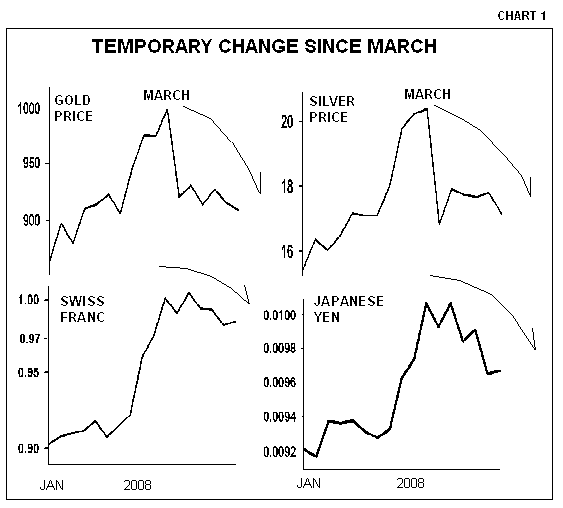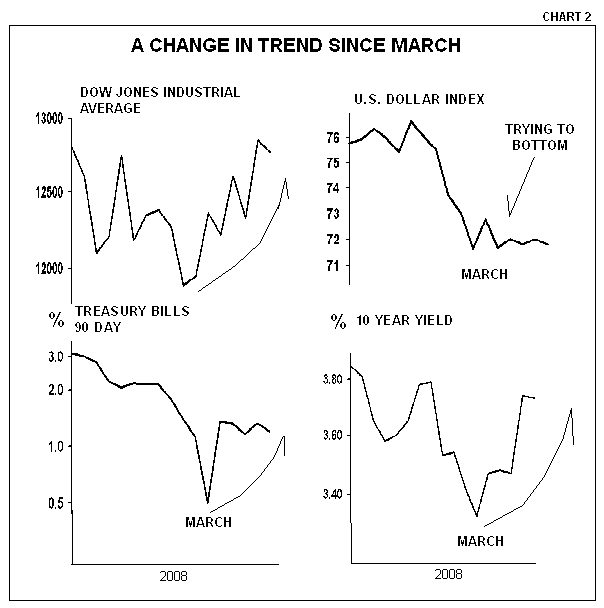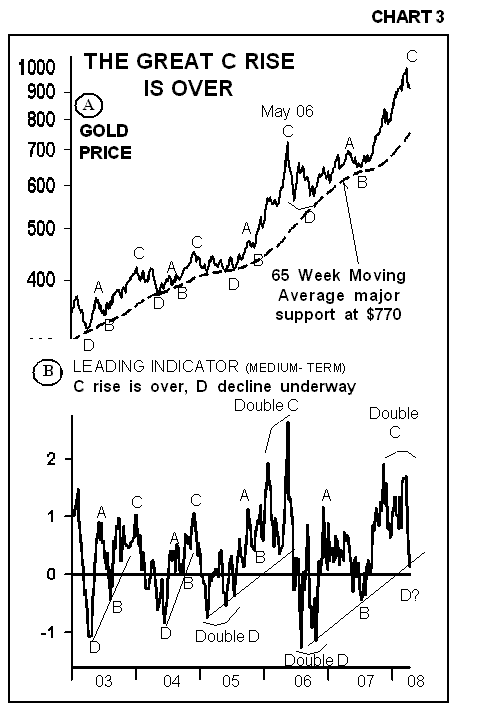Gold and Commodities Ongoing Bull Market
Commodities / Gold & Silver Apr 28, 2008 - 04:21 PM GMTBy: Aden_Forecast
 The year is still young, yet it's seen many commodities soar. From the precious metals, to the base metals, like copper and tin, to raw materials, to energy, like oil and natural gas, to the soft commodities, like corn and wheat... the commodity bull market has been flexing its muscles.
The year is still young, yet it's seen many commodities soar. From the precious metals, to the base metals, like copper and tin, to raw materials, to energy, like oil and natural gas, to the soft commodities, like corn and wheat... the commodity bull market has been flexing its muscles.
In the first quarter alone, gold was up 10%, silver gained even more, near 17%, and copper surged 25%. This is in stark contrast to the stock market as the Dow Industrials lost 6% during this time.
The subprime crisis and its rippling effects have kept gold and silver strong since last Summer. In fact, it's helped keep the gold price strong in all currencies. But the Bear Stearns emergency rescue seemed to be the final blow for now. It looks like it marked the end of a panic.
Since then, gold has been coming down from its $1004 record high posted on March 18. The dollar has also formed a small bottom while stocks and interest rates have been rising (see Charts 1 and 2 ). The intermediate trend appears to be changing. We stress the intermediate trend because the major trends are very much intact, which is up for gold and the metals, and down for the dollar.
GOLD: Time to consolidate
Gold's C rise is finally over. After rising 55% in nine months, in one of the best intermediate rises in the current seven year bull market, it signaled several things. Most important is the strength behind the bull market because new highs continued to be reached.
Gold's next step is likely to be a good downward correction that could take several months to develop. In other words, the gold price is poised to move lower in a decline we call D (see Chart 3A ). In a worst case D decline, gold could fall 22% (like it did in 2006), which would take it to the $780 level. If it declines by 15% (like it did in 2003), the weakness could end near $850. If gold holds above $840, it'll be incredibly strong.
The Summer is normally a seasonally low time for gold and this current D decline, based on timing, could end in the June through August time period. This means buying gold during the Summer may end up being the best time to buy.
Gold is a cyclical market, sometimes amazingly so, and if the cycles continue as impressively as they have over the last seven years, this scenario is the most likely one (see A through D on Chart 3B ).
This of course is baring any surprise move, like the U.S. invading Iran . But surprises tend to come at interesting times, like when the subprime problem started last Summer. Gold was set to rise in a C rise and this crisis helped push it to record highs.
BULL MARKET HAS MORE YEARS TO RUN
Some worry that the March peak was THE peak for gold. This is very unlikely considering the world situation and the economic imbalances today. Plus, demand for gold is growing strongly. It truly is an international, expanding market and it's easy for people to buy. Last month, for instance, Chinese banks began trading gold futures.
The gold market is currently more powerful compared to the 1970s. There is much more money behind the move. Whether it be China , India , the Middle East , Russia or elsewhere, the world has mega wealth and it's acquiring gold.
What to watch for
Gold's 65-week moving average works very well in identifying the major trend (see Chart 3A ). The gold price has been consistently above this level since August, 2001. This average provides solid support at $770. For now, gold is vulnerable below $950 (basis June) and it'll be weak in a D decline once it stays clearly below $888.
By Mary Anne & Pamela Aden
Mary Anne & Pamela Aden are well known analysts and editors of The Aden Forecast, a market newsletter providing specific forecasts and recommendations on gold, stocks, interest rates and the other major markets. For more information, go to www.adenforecast.com
Aden_Forecast Archive |
© 2005-2022 http://www.MarketOracle.co.uk - The Market Oracle is a FREE Daily Financial Markets Analysis & Forecasting online publication.






